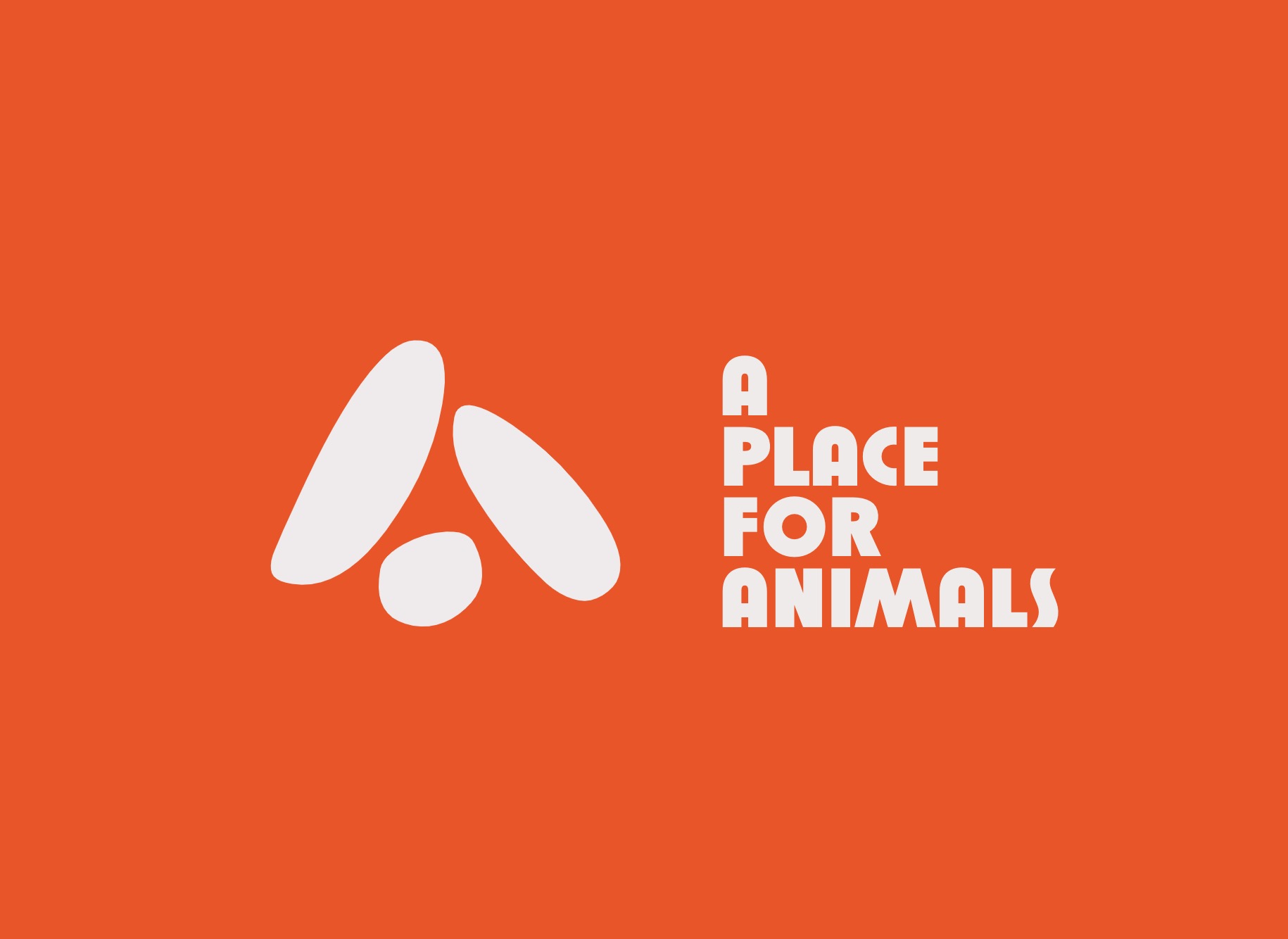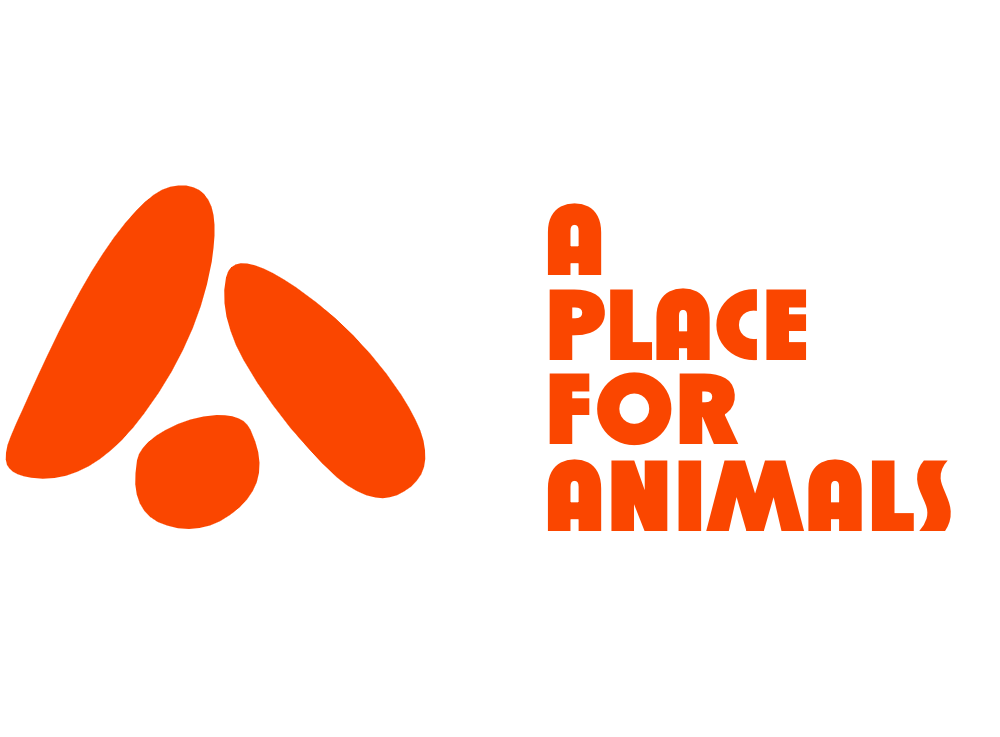Cats
Should Cats Have Popcorn in Their Diet?
Jump into the debate on whether cats should have popcorn in their diet to uncover the surprising risks and impacts lurking behind this popular snack choice.

Feeding popcorn to cats isn't recommended. Cats have specific dietary needs that popcorn doesn't provide. Popcorn lacks essential nutrients like proteins and minerals important for cat health. Cats may experience digestive issues from ingredients like salt and butter. Moderation is key if offering popcorn, but it's best to focus on balanced cat food. Cats can't thrive on popcorn alone. To learn more about the risks and impact of feeding popcorn to cats, explore why it's essential to prioritize their dietary requirements. A cat-friendly diet guarantees a happy and healthy feline companion.
Key Takeaways
- Popcorn is not essential for cats' nutrition.
- Cats may face digestive issues from popcorn.
- Buttered popcorn can lead to weight gain.
- Popcorn lacks vital proteins and minerals for cats.
- Opt for cat-friendly treats to meet dietary needs.
Potential Risks of Feeding Popcorn to Cats
Feeding popcorn to cats can pose significant risks to their health and well-being. While it may seem important to share a snack with our feline friends, popcorn can actually lead to various health issues in cats. Cats have sensitive stomachs, and ingredients like butter and salt commonly found in popcorn can cause digestive problems. Salted popcorn, in particular, can be toxic to cats if consumed in large amounts, resulting in symptoms such as vomiting, diarrhea, and dehydration. Additionally, buttered popcorn can lead to gastrointestinal upset and weight gain in cats.
To guarantee the well-being of our beloved pets, it's vital to feed them popcorn in moderation. While it may be tempting to share our favorite snack with our furry companions, it's essential to prioritize their health and stick to a diet that meets their nutritional needs. By being mindful of the potential risks associated with feeding cats popcorn and opting for more suitable treats, we can help keep our feline friends happy and healthy.
Lack of Nutritional Value in Popcorn

Popcorn lacks necessary proteins and minerals essential for a cat's diet, making it an inadequate nutritional choice for feline companions. While cats eat popcorn, it doesn't offer the crucial nutrients they need to thrive. This lack of nutritional value means that popcorn shouldn't be a staple in your kitty's menu. In fact, feeding popcorn to cats as a significant part of their diet can lead to deficiencies and health issues down the line. Remember, cats have specific dietary requirements that popcorn simply doesn't fulfill.
Although cats may enjoy the occasional nibble of plain, air-popped popcorn, it should only be given in moderation. Keep in mind that cats need a balanced and complete diet to stay healthy. While popcorn might seem like a fun snack to share with your feline friend, it's important to prioritize their nutritional needs above all else. Your cat's well-being should always come first.
Harmful Ingredients in Popcorn for Cats

Considering the harmful ingredients found in popcorn for cats, it's important to be aware of potential risks associated with certain additives commonly found in this snack. When it comes to our feline friends, we must pay careful attention to what they eat to keep them healthy and happy. Here are three harmful ingredients in popcorn that can pose risks to your cat if consumed:
- Salt: Excessive salt in popcorn can lead to sodium ion poisoning in cats, causing symptoms like vomiting, diarrhea, tremors, and even seizures.
- Butter: The high fat content in butter can be difficult for cats to digest, potentially leading to gastrointestinal upset or even pancreatitis.
- Chocolate: This sweet treat contains theobromine, a substance toxic to cats. Even small amounts of chocolate in popcorn can be harmful and may result in serious health issues.
It's essential to be mindful of what your cat eats to avoid exposing them to toxic foods like these found in popcorn. Ensuring they have a balanced and cat-friendly diet is key to their well-being.
Impact of Popcorn on Cats Digestive System

Understanding the impact of popcorn on a cat's digestive system is vital for guaranteeing their overall health and well-being. Cats, as obligate carnivores, have specific dietary needs that popcorn can't satisfy. Feeding popcorn to cats may result in digestive issues due to their difficulty in digesting grains like corn. Additionally, popcorn lacks essential nutrients that are important for a cat's best health. As obligate carnivores, cats require nutrients primarily from animal-based proteins, not grains.
Offering popcorn to cats may not provide any nutritional benefits and could potentially harm their digestive system. To prevent such issues, it's advisable to prioritize balanced cat food that meets all of a cat's nutritional requirements. By choosing cat food specifically formulated for their dietary needs, you can ensure that your feline companion stays healthy and happy without the risk of digestive complications associated with feeding them popcorn.
Popcorn and Cat Dental Health

Improving cat dental health can be achieved through incorporating plain popcorn pieces into their diet as an occasional treat. When it comes to cat dental health, popcorn can play a beneficial role in maintaining overall dental hygiene. Here are three ways popcorn can positively impact your feline friend's teeth:
- Reducing Plaque Buildup: The act of chewing on popcorn can help reduce plaque buildup on your cat's teeth. The crunchy texture of popcorn acts as a natural abrasive, assisting in cleaning your cat's teeth as they chew.
- Promoting Chewing: Chewing on popcorn can aid in preventing tartar formation, which is essential for maintaining healthy gums in cats. Introducing small, plain popcorn pieces can encourage your cat to chew, promoting better dental health.
- Enhancing Dental Hygiene: Popcorn can act as a gentle cleaner, removing food particles and debris from your cat's teeth. This can contribute to better overall dental hygiene and keep your cat's teeth in good condition. So, consider adding popcorn to your cat's diet as a dental health-friendly occasional snack!
Allergic Reactions to Popcorn in Cats

Upon consuming popcorn, cats can display allergic reactions due to the corn allergens present in this snack. These allergic reactions can appear in various symptoms, including itching, skin rashes, sneezing, or gastrointestinal issues. While allergic reactions to popcorn in cats are relatively rare, they can still occur in sensitive individuals, emphasizing the importance of being cautious when offering this treat to feline friends.
| Allergic Reactions to Popcorn in Cats |
|---|
| Symptoms |
| Itching |
| Skin irritations |
| Sneezing |
| Digestive problems |
| Diagnosis |
| Elimination diets |
| Allergy testing by a veterinarian |
If you suspect that your cat is experiencing an allergic reaction to popcorn, it is essential to consult with a veterinarian for proper diagnosis and guidance. Monitoring your cat for any signs of allergic reactions after consuming popcorn can help safeguard their well-being and prevent any potential health issues.
Choking Hazards Associated With Popcorn

Popcorn kernels pose a choking hazard for cats due to their size and shape, requiring careful supervision during consumption to prevent potential choking incidents. When a cat eats popcorn, there are specific risks to be aware of:
- Choking Hazard: Cats may not chew popcorn thoroughly, making it easier for large kernels to get stuck in their throat.
- Need for Oversight: It's important to supervise your cat while they eat popcorn to make sure they don't ingest large pieces that could lead to choking.
- Offer Small Amounts: Providing small portions of popcorn can help minimize the risk of choking incidents in cats.
Popcorn and Cats: Age Considerations

When evaluating the age of your cat, it's crucial to keep their specific needs in mind before deciding whether to introduce popcorn into their diet. Older cats may have difficulties digesting popcorn, making it a less suitable treat for senior felines.
Young kittens should also avoid popcorn due to their delicate tummies.
Senior Cats and Popcorn
In considering the dietary needs of senior cats, it's important to be mindful of the potential risks associated with including popcorn in their diet. When it comes to our older feline friends, here are a few essential points to keep in mind:
- Health First: Senior cats may have more sensitive digestive systems, making it vital to avoid feeding them popcorn to prevent any unwanted stomach issues.
- Dietary Requirements: Popcorn lacks essential nutrients that senior cats need for best health and may not align with their dietary requirements, potentially leading to deficiencies.
- Dental Issues: Older cats are more prone to dental problems, and the hard kernels in popcorn can pose a risk to their teeth, potentially causing damage or discomfort.
Young Cats and Popcorn
Considering the nutritional needs of young cats, it is important to understand the potential risks associated with incorporating popcorn into their diet. Young cats require essential nutrients for their growth and development, which popcorn lacks. Additionally, popcorn poses a choking hazard due to their small size and underdeveloped chewing abilities. The high fat content in buttered popcorn can also lead to weight gain and digestive issues in young cats. To guarantee excellent health and growth, it's best to stick to a balanced cat food diet for young cats. Below is a table summarizing why popcorn may not be suitable for young cats:
| Potential Risks of Popcorn for Young Cats | |
|---|---|
| Lacks essential nutrients | Choking hazard due to size and chewing abilities |
| Weight gain and digestive issues | Sensitive digestive systems may lead to stomach upset |
Alternatives to Popcorn for Cats

When considering alternatives to popcorn for cats, it's important to explore healthy snack options that cater to their nutritional needs.
Cat-friendly treats like cooked meats, fruits, and veggies such as turkey, blueberries, and peas can provide a balanced diet.
Healthy Snack Options
With a variety of safe and healthy snack options available, cats can enjoy a balanced diet that includes vegetables like zucchini, celery, carrots, and green bell peppers. These veggies aren't only packed with essential nutrients but also provide a crunchy texture that cats often enjoy.
Here are some other healthy snack options for your feline friend to munch on:
- Spinach: Rich in vitamins A, C, and K, spinach is a nutritious choice for your cat's snack time.
- Green Beans and Peas: These vegetables are good sources of fiber, aiding in digestion and overall gut health.
- Pumpkin: A great source of fiber, pumpkin can help with hairball control and promote a healthy digestive system.
Introducing these healthy snacks can add variety and nutrition to your cat's diet.
Cat-Friendly Treats
Cat owners can provide a variety of safe and nutritious alternatives to popcorn for their feline companions. Safe cat-friendly treats like cooked meats such as turkey, chicken, and fish offer essential proteins for cats.
Fruits like bananas, blueberries, and apples can be healthy options, providing vitamins and antioxidants. Vegetables such as broccoli and peas are also great choices, offering fiber and beneficial nutrients. Cooked eggs and sweet potatoes can add tasty variety to your cat's diet.
Remember to consult with a vet before introducing new treats to confirm they're safe and suitable for your cat's health. It's important to provide a balanced diet for your furry friend and avoid foods that are toxic to felines.
Nutritious Alternatives
Exploring nutritious alternatives to popcorn for feline diets reveals a variety of safe and delicious options cat owners can consider.
Here are three alternatives to popcorn for cats:
- Cooked Plain Meats: Turkey, chicken, ham, beef, or fish are excellent sources of protein for your feline friend.
- Cat-Safe Fruits and Veggies: Consider offering bananas, blueberries, and apples as healthy snacks that can add variety to their diet.
- Eggs and Veggies: Cooked, plain eggs or broccoli can be nutritious options to supplement your cat's meals.
Homemade Cat-Friendly Popcorn Options

Have you ever thought about how to create homemade cat-friendly popcorn choices for your feline companion? When it comes to cats and popcorn, plain salted, air-popped popcorn can be beneficial to a cat's diet. Here's a straightforward guide to making a safe and enjoyable snack for your furry friend:
| Ingredients Needed | Preparation Steps | Tips for Cat-Friendly Popcorn |
|---|---|---|
| Air-popped popcorn | 1. Pop the popcorn without any oil or seasoning. | Avoid adding salt, butter, or spices to the popcorn. |
| Plain non-fat yogurt | 2. Mix the popcorn with a small amount of plain yogurt. | Mix in moderation to prevent digestive issues. |
| Kitty-safe fruits/vegetables | 3. Add diced fruits or vegetables like apples or carrots. | Ensure fruits/vegetables are safe for cats before adding. |
| Airtight container | 4. Store any leftovers in an airtight container. | Keep popcorn fresh and free from contaminants. |
| Love and care | 5. Serve the popcorn as an occasional treat with love. | Enjoy bonding time with your cat during snack time. |
With these homemade cat-friendly popcorn options, you can treat your cat to a tasty snack while safeguarding their safety and well-being.
Store-Bought Popcorn: Safe for Cats?

After discussing homemade cat-friendly popcorn options, the focus now shifts to the safety of store-bought popcorn for cats. When considering store-bought popcorn for our feline friends, it's important to keep a few key points in mind:
- Opt for plain, air-popped popcorn: Cats can enjoy plain, air-popped popcorn in moderation as a treat. Avoid varieties with salt, butter, or harmful additives that could be harmful to their health.
- Monitor for digestive issues: While plain, air-popped popcorn can be a safe snack for cats, it's vital to watch out for any signs of digestive issues or discomfort after consumption. Every cat is different, so it's crucial to observe your furry friend's reaction.
- Serve in moderation: Like any treat, popcorn should be given to cats in moderation. Excessive consumption can lead to digestive problems or nutritional imbalances. Remember, a small amount as an occasional treat can be a delightful addition to your cat's diet.
Understanding Cats Dietary Needs

When we think about the dietary needs of our feline friends, it's important to remember that cats are obligate carnivores, depending on animal meat for essential nutrients.
A balanced diet customized to fulfill their distinct nutritional needs is vital for their overall health and well-being. Choosing cat food that offers the required proteins and minerals guarantees that our cats flourish and stay healthy.
Cat Nutritional Requirements
Understanding cats' dietary needs is essential for ensuring their best health and well-being as obligate carnivores. Here are three key points to take into account when it comes to cat nutritional requirements:
- Animal-Based Proteins: Cats require a diet rich in animal-based proteins to thrive as obligate carnivores. These proteins provide essential nutrients like taurine and arachidonic acid necessary for their overall health.
- Essential Vitamins and Minerals: Vitamins such as A and D are vital for cats' well-being and are typically found in animal meat. Commercial cat foods are designed to guarantee cats receive the necessary vitamins and minerals for peak health.
- Limited Plant-Based Digestion: Cats lack the enzymes needed to efficiently digest nutrients from plant-based sources like grains. Hence, a diet focused on high-quality animal proteins is crucial to meet their nutritional needs effectively.
Balanced Diet for Cats
To guarantee excellent health and well-being for cats, it's crucial to offer them a well-rounded diet abundant in high-quality animal-based proteins. Cats are obligate carnivores, meaning their bodies require meat to thrive. When you feed your cat, keep in mind that their dietary needs differ from ours; they need nutrients like taurine and arachidonic acid found in animal meat.
Avoid feeding your cat popcorn, as it lacks the essential nutrients they need and can be harmful to their health. A balanced diet tailored to their carnivorous nature ensures they receive the necessary vitamins and minerals for a healthy life. By prioritizing their need for meat-based proteins, you contribute to the overall health benefits and well-being of your feline friend.
Why Cats Should Avoid Popcorn
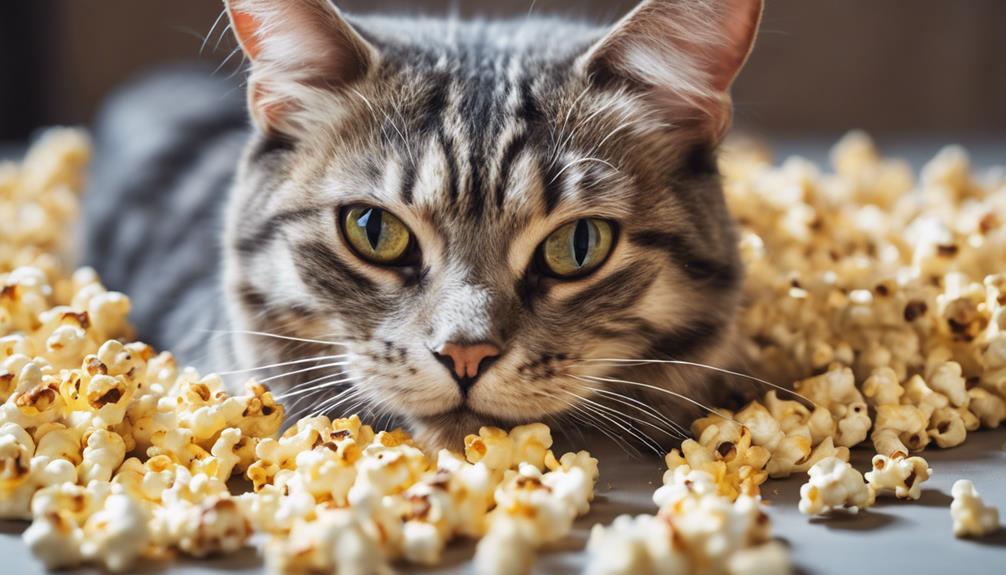
While popcorn may seem like a tempting snack to share with your feline friend, it's important to understand why cats should avoid this popular treat. Here are three reasons why popcorn may not be the best choice for your cat's diet:
- Gastrointestinal Issues: Cats have sensitive stomachs, and ingredients like butter and salt commonly found in popcorn can lead to gastrointestinal problems such as diarrhea or vomiting.
- Weight Gain: Buttered popcorn, in particular, is high in fats and calories. Feeding your cat popcorn regularly can contribute to weight gain, which may lead to obesity and related health issues.
- Nutritional Deficiency: Popcorn lacks essential proteins and minerals that cats need in their diet. As obligate carnivores, cats require nutrients found in meat-based foods for optimal health. Feeding them popcorn can result in nutritional imbalances and deficiencies.
Considering these factors, it's best to avoid offering popcorn to your feline companion and instead opt for cat-friendly treats that align with their dietary needs.
Importance of Balanced Cat Diet

Maintaining a balanced diet rich in animal meat proteins is vital for guaranteeing peak health and well-being in cats. Just like us, cats require specific essential nutrients like taurine, arachidonic acid, and vitamins A and D to thrive. These nutrients play an important role in their overall health, from supporting heart function to maintaining good vision and a strong immune system.
A diet lacking in these essential components can lead to serious health issues in our feline friends. That's where commercial cat food comes in. Specifically formulated to meet the dietary requirements of cats, commercial cat food provides the perfect balance of proteins, fats, vitamins, and minerals necessary for their well-being.
Conclusion: Keeping Cats Healthy and Happy

Guaranteeing our feline companions' health and happiness starts with providing them a well-balanced diet tailored to their specific nutritional needs. Cats shouldn't have popcorn in their diet as it lacks essential nutrients and can trigger gastrointestinal issues due to ingredients like butter and salt. Feeding popcorn to cats isn't recommended as it's high in calories, which can lead to weight gain and potential health problems. Instead, prioritize a diet rich in meat-based proteins to keep your cat healthy and thriving.
- Choose Nutrient-Rich Cat Food: Select cat food that's specially formulated to meet your cat's dietary requirements, ensuring they receive all the essential nutrients for peak health.
- Avoid High-Calorie Treats: Steer clear of offering your cat snacks like freshly popped popcorn, which can be high in calories and contribute to weight gain over time.
- Regular Vet Check-Ups: Schedule routine vet visits to monitor your cat's health, address any dietary concerns, and ensure they're on the right track for a long and happy life.
Frequently Asked Questions
Is It OK to Give a Cat Popcorn?
Yes, it's fine to give a cat plain, air-popped popcorn as an occasional treat. However, we should avoid buttered or heavily seasoned varieties. Moderation is crucial to guarantee our feline friends stay healthy and happy.
Why Do Cats Love Popcorn?
We love popcorn because its strong aroma and appealing taste stimulate our curiosity. The enticing qualities of butter or cheese on popcorn attract us due to our heightened sense of smell. These factors make us interested to investigate the snack.
Can I Give My Cat Cheddar Popcorn?
We should avoid giving our cats cheddar popcorn due to their lactose intolerance. It can cause digestive issues like diarrhea and upset stomach. Opt for plain, air-popped popcorn as a safer snack option for our feline friends.
Can Diabetic Cats Have Popcorn?
Diabetic cats shouldn't have popcorn. It's high in carbs, spikes blood sugar, lacks essential nutrients, and can lead to weight gain. Our furry friends with diabetes need a low-carb, high-protein diet for better management.
Conclusion
To sum up, it's best to steer clear of giving popcorn to your feline friend. While it may seem like a fun treat, the risks outweigh the benefits. Cats have specific dietary needs that popcorn simply doesn't fulfill.
By sticking to a balanced diet tailored to their health, you can keep your furry companion happy and healthy for years to come. So, next movie night, save the popcorn for yourself and give your cat a more suitable snack instead.
Paul’s love for animals knows no bounds. As a dedicated writer and animal lover, Paul brings a unique perspective to our team. His firsthand experiences with various animals enrich our content and provide valuable insights into their behavior and needs. Whether he’s sharing tips for pet care or shedding light on pressing conservation issues, Paul’s passion for animals shines through in everything he does.
Dogs
Dogs Are Better Than Cats: 7 Reasons

We are firm believers that dogs surpass cats for seven crucial reasons. Dogs, who have their origins in Central Asia 15,000 years ago, provide loyalty and companionship. They excel at tasks such as herding and guarding. Dogs offer health benefits, including disease detection and boosting immunity. They encourage active lifestyles and cognitive stimulation. Dogs form strong social bonds, which help to build communities and enhance social interactions. Their responsiveness to training commands strengthens the bond between humans and dogs. Dogs are also excellent at cleaning up after themselves, preferring to do their business outside. For more compelling reasons why dogs are superior, delve deeper into the topic.
Key Takeaways
- Dogs offer superior disease detection with their keen sense of smell.
- Dogs reduce allergies and asthma risks in children through immune system benefits.
- Dogs promote physical activity, social interactions, and community engagement.
- Dogs are trainable, responsive, and form strong social bonds with humans.
- Dogs contribute to indoor cleanliness by going potty outdoors and shedding less fur.
Historical and Cultural Significance
Dogs have long held a prominent place in history and culture, embodying qualities of loyalty and companionship across various civilizations. Unlike cats, who were domesticated in Egypt around 4,000 years ago, dogs have been by our side for approximately 15,000 years, originating in Central Asia. Throughout history, dogs have served a multitude of roles, from herding livestock to guarding homes. In contrast, cats were revered in ancient Egypt, with the goddess Bastet symbolizing their cultural significance.
Dogs haven't only been our companions but have also played integral roles in myths and folklore, representing loyalty, protection, and friendship in diverse cultures worldwide. The recognition of 189 dog breeds by the American Kennel Club showcases the extensive historical and cultural impact dogs have had on human societies. From hunting partners to service animals, dogs have woven themselves into the fabric of our history and continue to be cherished for their unwavering loyalty and companionship.
Health Benefits and Abilities

Highlighting the remarkable health benefits and abilities that dogs offer, it's fascinating to explore how these furry companions contribute to our overall well-being and daily lives. Dogs have a superior sense of smell and can be trained to detect diseases like cancer, showcasing their incredible ability to aid in early detection. Exposure to dog dust has been linked to preventing allergies and asthma in children, highlighting the immune-boosting potential of having a dog around. Additionally, dogs encourage physical activity and a healthy lifestyle by promoting regular exercise, keeping both their owners and themselves fit and active. Their cognitive abilities are also impressive; dogs can be trained to take selfies and respond to commands on iPads, demonstrating their intelligence and adaptability. Moreover, having a dog around can help build immunity in infants by altering intestinal bacteria, providing a natural boost to the immune system. These health benefits and abilities make dogs invaluable companions for a healthier and happier life.
| Health Benefits and Abilities | |
|---|---|
| Superior sense of smell for disease detection | Prevention of allergies and asthma |
| Encouragement of physical activity | Impressive cognitive abilities |
| Boosting immunity, especially in infants |
Social Interactions and Connections

Dogs are known for their ability to form strong social bonds with both humans and other dogs, enhancing our connections with others.
Their friendly and approachable nature often leads to interactions with fellow dog owners during walks and outings.
These interactions can foster a sense of community and belonging among dog owners, creating opportunities for shared experiences and friendships.
Canine Social Bonds
Engaging with canine companions fosters meaningful social connections and interactions, enriching our lives in various ways. Dogs not only increase social interactions but also promote community engagement through activities like dog meetups and dedicated social media pages. Laughter and shared playful interactions with dogs contribute to a higher quality of life. Additionally, owning a dog encourages physical activity as dog owners tend to walk more, leading to improved fitness levels and overall well-being. The bond between humans and dogs goes beyond companionship, extending to enhancing our social experiences and well-being. Below is a table summarizing the positive impact of canine social bonds:
| Aspects | Benefits |
|---|---|
| Social Interactions | Increased interactions |
| Community Engagement | Promotes community involvement |
| Physical Activity | Encourages regular exercise |
Feline Independence Nature
Exploring the feline independence nature reveals a distinctive approach to social interactions and connections compared to dogs. Cats tend to exhibit more independent behavior, leading to fewer social interactions. Their selective nature when socializing results from their historical role as hunters, impacting how they respond to social stimuli.
Unlike dogs, whose sociable behavior encourages owners to engage in more social activities, cats prefer solitude and choose when to interact. Understanding the feline independence nature helps us appreciate their unique way of forming connections, which may be more subtle but equally meaningful.
While dogs promote increased social interactions, cats offer a different perspective on companionship, appealing to those who value independence and selective social bonds.
Training and Responsiveness
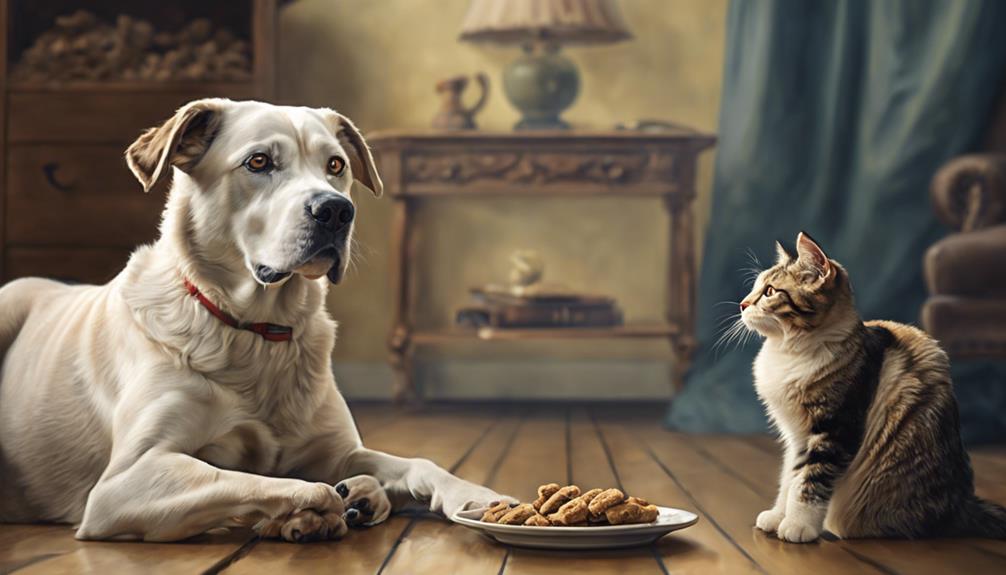
When it comes to training and responsiveness, the key factor that sets dogs apart from cats is their innate ability to learn and adapt to various tasks. Dogs can be trained to perform a wide range of tasks, showcasing their high level of responsiveness to commands and cues. This trainability not only demonstrates their intelligence but also enhances the bond between dogs and humans through effective communication.
On the other hand, cats, historically used for hunting, may exhibit less responsiveness compared to dogs. While cats may recognize their names, they often display selective hearing by choosing not to respond. This behavior contrasts with dogs' enthusiasm to learn and their willingness to engage in training exercises.
Allergies and Asthma Prevention
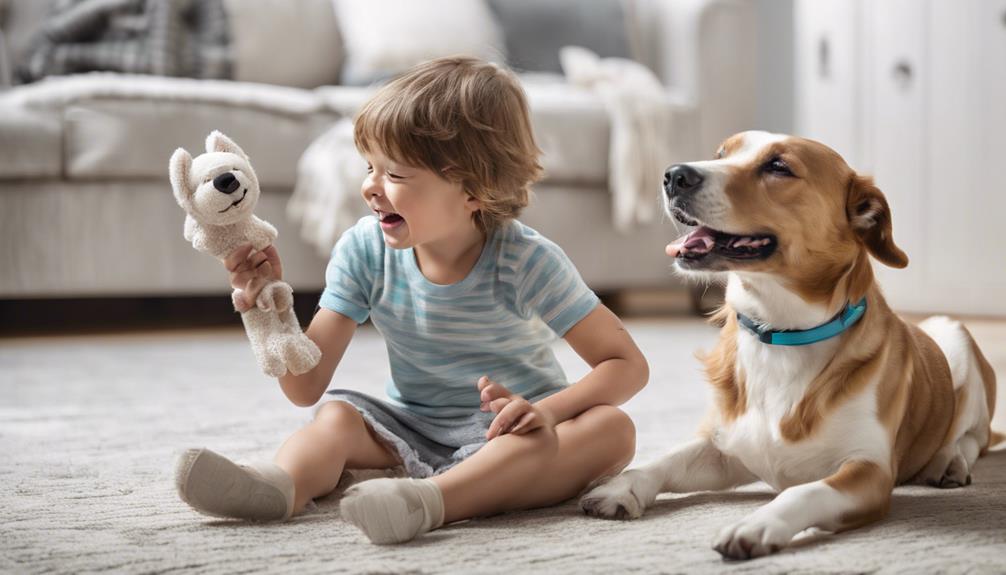
Exposure to dog dust has been proven to lower the likelihood of developing allergies and asthma in kids. Having a dog around can change the gut bacteria, which in turn boosts the immune system.
Dogs can help strengthen immunity in young ones, potentially decreasing the risk of allergies and asthma.
Pet Dander Control
Pets play an important role in maintaining a healthy environment by controlling pet dander, thereby helping prevent allergies and asthma. Exposure to dog dust can reduce the risk of allergies and asthma in children. Dogs alter intestinal bacteria, leading to improved immune responses and allergy prevention. Having a dog around can help build immunity in infants and children. Dogs provide unique health benefits that aid in preventing allergies and asthma. Cats do not offer the same protective effects against allergies and asthma as dogs do.
| Key Points |
|---|
| Exposure to dog dust can reduce allergies and asthma risk in kids. |
| Dogs alter intestinal bacteria, improving immune responses. |
| Having a dog can boost immunity in infants and children. |
| Dogs offer unique health benefits for allergy and asthma prevention. |
| Cats lack the protective effects against allergies and asthma that dogs provide. |
Respiratory Health Benefits
Dogs' unique respiratory health benefits, particularly in preventing allergies and asthma, make them invaluable companions for individuals seeking improved well-being. Exposure to dog dust can reduce the risk of allergies and asthma in children, thanks to the alterations in intestinal bacteria that lead to a better immune response.
Studies also indicate that having a dog around can help build immunity in infants, demonstrating the positive impact dogs make on respiratory health. Compared to cats, dogs provide distinct advantages in preventing respiratory issues, contributing to a healthier home environment overall. For people concerned about allergies and asthma, having a dog may offer significant benefits in maintaining better respiratory health.
Cleanliness and Housekeeping
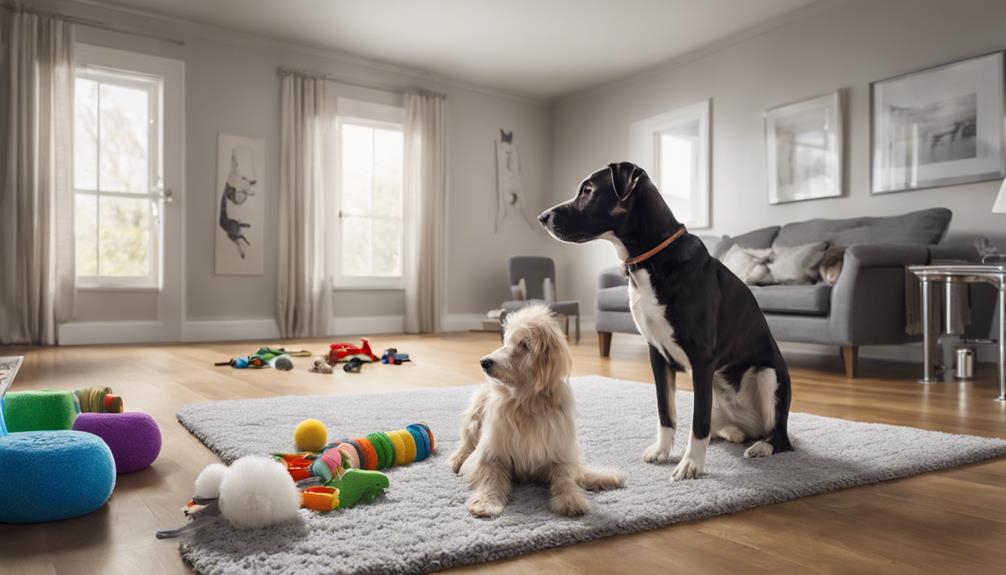
Maintaining a clean and tidy home is easier with dogs, as they can be trained to do their business outside, reducing the need for indoor cleanup. Dogs help you make sure your house stays fresh and clean by learning to go potty outdoors. Dog houses are typically cleaner and neater compared to homes with cats, as dogs keep their bathroom activities outside.
Regular de-shedding of dogs can also help you maintain cleanliness in your house, minimizing fur around the place. Cats and dogs have different bathroom habits, with dogs needing to be taken outside for their business. Dogs can even be trained to let you know when they need to go outside, making the cleanup process more manageable.
Cats, on the other hand, require litter boxes, which can sometimes create odors and messes in the house. Additionally, cats may vomit or cough up hairballs, leading to extra cleaning tasks around the house.
Celebration and Festivities
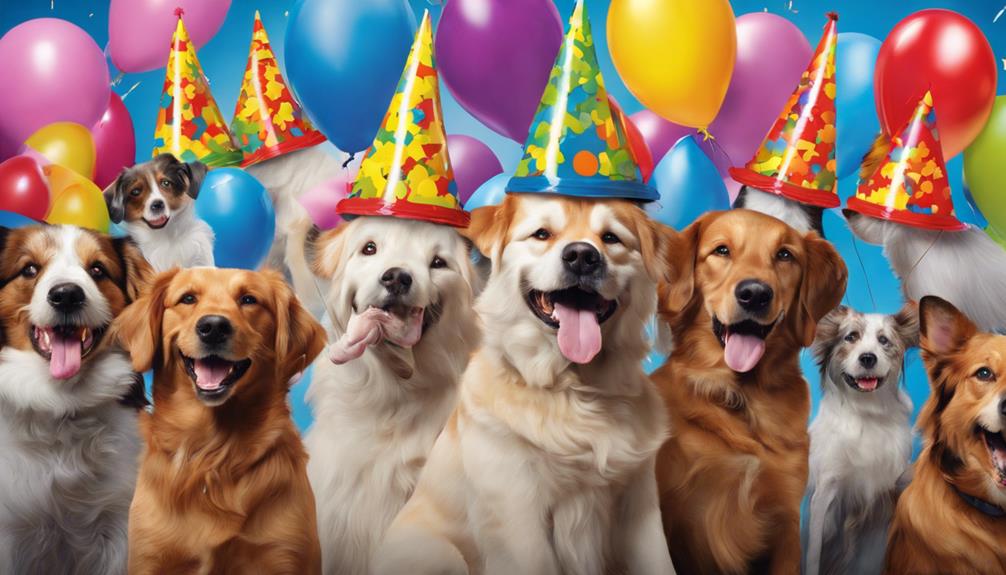
During festive occasions, dogs bring an extra element of joy and excitement with their enthusiastic participation. Holiday celebrations become even more special when our furry friends join in the fun. Dressing up dogs in costumes for Halloween is a popular activity that many pet owners enjoy. Seeing our pets prance around in themed outfits adds to the festive spirit and creates lasting memories.
Including dogs in holiday activities like parades or family gatherings can make these events even more enjoyable. Pets, especially dogs, have a way of spreading happiness and bringing people together during festive occasions. The experience of dressing up and going out with a dog during holidays can be heartwarming and delightful.
Frequently Asked Questions
What Are 5 Reasons Dogs Are Better Than Cats?
When comparing dogs and cats, five reasons why dogs are superior include their trainability, security instincts, encouragement for physical activity, constant companionship, and unwavering loyalty.
Dogs excel in learning commands, alerting owners of potential threats, motivating owners to exercise, showing excitement when reunited, and staying devoted during tough times.
These qualities make dogs exceptional pets that enhance our lives in numerous ways.
Why Do Dogs Obey Better Than Cats?
Dogs obey better than cats due to their history of working with humans and training. Dogs' ability to follow commands stems from their trainable nature and desire to please their owners. Through training, dogs learn behaviors and cues, enhancing their responsiveness to instructions.
Cats, historically used for hunting, may exhibit less obedience.
The bond between dogs and humans is strengthened by their obedience, making them excellent companions who can work and communicate effectively with us.
What Is Better Dogs or Cats?
When considering whether dogs or cats are better, it ultimately depends on individual preferences and lifestyle. Dogs offer loyalty, companionship, and are great for physical activities like running.
On the other hand, cats are independent and require less maintenance. Both have their unique qualities, so the choice between dogs and cats boils down to personal needs and what one values in a pet.
Choose based on what aligns best with your lifestyle and preferences.
Are Dogs More Loyal Than Cats?
Yes, dogs are generally more loyal than cats. This loyalty is evident in their protective instincts and unwavering dedication to their owners. Dogs prioritize their owner's safety and well-being, forming strong bonds based on trust and companionship.
While cats may exhibit independent behavior, dogs consistently display loyalty and devotion, making them excellent companions for those seeking faithful and devoted animal companions.
Can Antibiotics Affect a Dog’s Behavior and Health, Making Them a Better Pet Than Cats?
Some antibiotics and increased urination in dogs can affect their behavior and health. While it’s important to consult a veterinarian first, antibiotics can improve a dog’s health, making them more active and lively pets than cats. Regular check-ups and proper medication can help ensure a happy and healthy pet.
What Are the Benefits of Feeding Raw Dog Food Compared to Traditional Dog Food?
When it comes to the benefits of raw dog food, many dog owners believe it offers a more natural and nutritious option for their pets. Raw dog food advocates claim it can improve digestion, promote healthier coats and skin, and increase energy levels in dogs compared to traditional dog food.
Conclusion
To sum up, dogs truly are man's best friend. Their loyalty, intelligence, and companionship make them the superior pet choice.
Just like a trusty sidekick in a superhero movie, dogs are always there to support and protect us.
So next time you're considering getting a pet, remember the numerous benefits that come with having a furry four-legged friend by your side.
Choose a dog, and you won't be disappointed!
Dana is our Lead Content Writer, bringing a wealth of knowledge and expertise to our team. With a background deeply rooted in animal studies and a profound love for all creatures, Dana is dedicated to crafting engaging and informative content that resonates with our audience. With Dana at the helm, you can trust that our content is accurate and engaging, catering to the diverse interests of animal enthusiasts everywhere.
Cats
Perfect Black and White Cat Breeds for You
Journey into the world of black and white cat breeds with the letter 'J' for a surprising pick that will captivate you from the start!
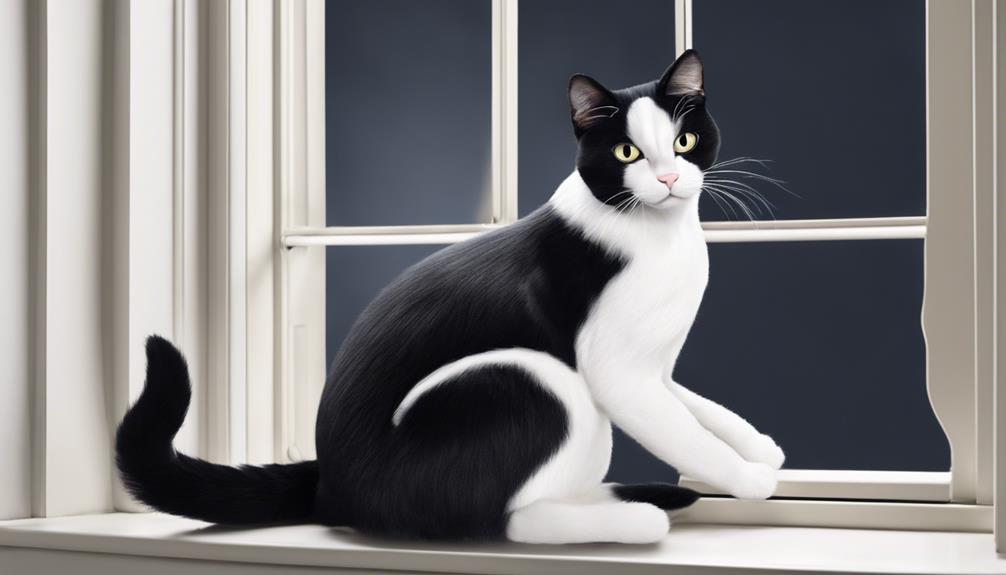
When searching for the perfect black and white cat breed, the Turkish Angora stands out with its luxurious long-haired coat, loving personality, and love for water activities. This breed features silky, shiny fur, well-proportioned bodies, and a lively attitude. Their fun-loving, sociable nature and high intelligence make them excellent companions. Regular grooming and interactive playtime are essential for their health and happiness. If you’re intrigued by the Turkish Angora’s distinctive characteristics, there is a lot more to learn about this charming breed’s temperament, adaptability, and suitability for different households.
Key Takeaways
- Maine Coon: Versatile with over 75 color combinations.
- Turkish Angora: Stunning black and white coats.
- Manx and Cymric: Playful, tailless breeds.
- Oriental Shorthair: Visually stunning patterns and colors.
- Scottish Fold: Unique charm with folded ears.
Maine Coon
Maine Coons, recognized as one of the largest domestic cat breeds, exhibit a striking appearance with their long, double coat and over 75 color combinations. These majestic felines can reach up to 16 inches in height and weigh between 9 to 17 pounds, making them a presence to behold in any home.
Their intelligence is remarkable, allowing them to adapt easily to various environments and situations. What truly sets Maine Coons apart is their dog-like personalities. They aren't your typical aloof cats; instead, they form deep bonds with their human companions, displaying loyalty and affection.
Maine Coons are like no other, enjoying interactive play and even walking on leads, showcasing their unique and adaptable nature. If you seek a feline friend with a regal presence, a loving heart, and a touch of playfulness, the Maine Coon might just be the perfect match for your family.
Cornish Rex
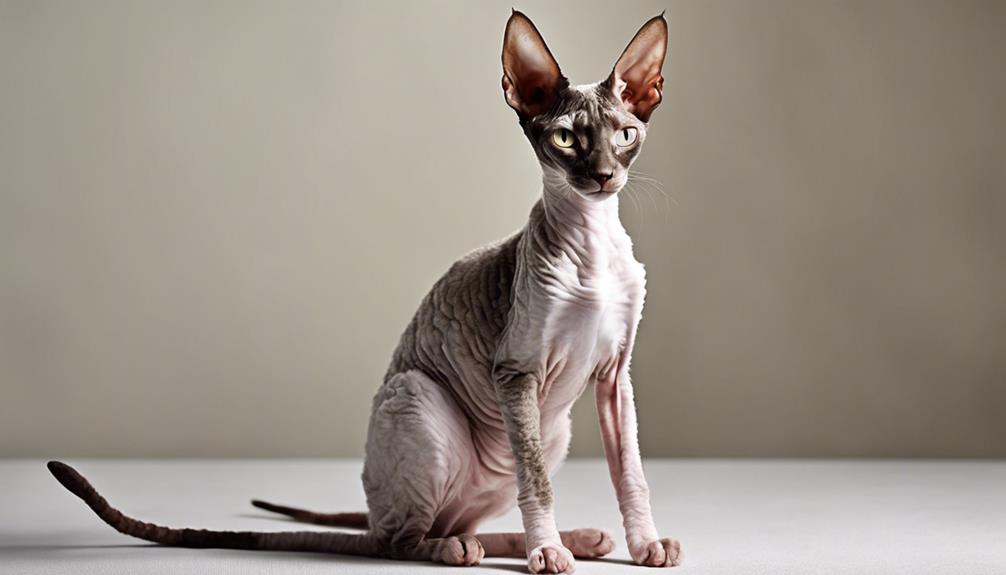
Cornish Rex cats sport unique curling coats that set them apart from other breeds, adding a touch of charm to their playful and affectionate personalities.
Their energetic nature and sociable demeanor make them delightful companions for families seeking an interactive and loving pet.
With a lifespan ranging from 10 to 16 years, these intelligent and engaging felines promise long-lasting joy and fun.
Unique Curling Coats
With their unique tight, curly coats, the Cornish Rex cats stand out among other breeds, making them a favorite among allergy sufferers and cat enthusiasts alike. Their hypoallergenic nature, thanks to minimal shedding and lower levels of the Fel d1 protein, appeals to those with sensitivities.
Not only do these cats offer a practical solution for allergy concerns, but their distinct coat texture provides a soft, velvety feel that's delightful to touch. The range of colors and patterns in which the Cornish Rex's coat comes adds to their striking appearance, making them visually enchanting.
Beyond their aesthetics, these cats are also known for their high activity levels and intelligence, requiring mental stimulation and playtime to keep them content and engaged.
Playful and Affectionate
We find Cornish Rex cats to be lively and affectionate companions, known for their playful nature and strong bonds with their human family. These black and white cat breeds aren't only energetic but also highly interactive, making them a joy to have around.
Their intelligence shines through as they enthusiastically participate in games and activities, always excited for engaging playtime. The unique coat of tight, curly hair adds to their charm, making them stand out in the feline world.
Their affection knows no bounds, forming deep connections with those they hold dear. With a Cornish Rex by your side, you can expect endless love, entertainment, and companionship.
Manx

Manx cats are renowned for their distinctive feature of being tailless or having short tails, a genetic trait that sets them apart from other feline breeds.
Their playful and affectionate nature makes them delightful companions, as they enjoy forming strong bonds with their human family members.
Additionally, Manx cats are known to be excellent jumpers, thanks to their powerful hind legs, and they're intelligent pets that quickly grasp new concepts, making them engaging and interactive companions.
Unique Tailless Feature
Renowned for their unique tailless feature, Manx cats display a special charm that distinguishes them from other breeds. This exceptional trait not only enhances their appeal but also boosts their leaping abilities, thanks to their strong hind legs.
The circular head and expressive eyes of the Manx cat contribute to their enchanting appearance, making them even more lovable. Despite their absence of a traditional tail, Manx cats are surprisingly nimble and playful, always eager for a game or a lively chase.
Their tailless nature adds an element of fascination to these already intriguing felines, making them a delightful addition to any family seeking a cat with a distinctive touch.
Playful and Affectionate
With their playful nature and affectionate demeanor, these tailless Manx cats are delightful companions for families seeking a loving feline friend. Manx cats' short tails and exceptional jumping abilities make them agile playmates, always ready for a game of chase or a pounce on their favorite toy.
Their sociable nature means they thrive on human interaction, forming strong bonds with their family members. Whether it's learning tricks or just cuddling up on the couch, Manx cats are intelligent and loving companions.
Available in various colors and patterns, including the classic black and white tuxedo look, these cats bring both charm and companionship to any home. If you're looking for a cat that's both playful and affectionate, the Manx breed might just be the perfect choice for you.
Munchkin

Recognized for their unique short legs that resemble those of Dachshunds, Munchkin cats are lively and spirited companions. These high-energy felines adore interactive play and are always ready for a game with kids, dogs, or their humans. Their mischievous personalities have earned them the nickname 'magpies', mirroring their playful nature and love for entertainment. Despite their shorter stature, Munchkins are surprisingly agile and skilled at keeping up with all the action.
Munchkin cats aren't only fun-loving but also enchanting and delightful, making them fantastic additions to any family. Their continual willingness to engage in play and entertain ensures that there's never a dull moment with these charming companions around. Whether it's chasing a toy or simply exploring their surroundings, Munchkins bring joy and liveliness to any household. With their lovable nature and playful antics, Munchkin cats are certain to capture the hearts of their owners and create lasting memories filled with laughter and fun.
Oriental Shorthair

Sleek-bodied with large ears and almond-shaped eyes, Oriental Shorthair cats come in a wide variety of patterns and colors, including striking black and white coats. These feline companions aren't only visually stunning but also possess inquisitive personalities that will keep you on your toes. Known for being chatty, Oriental Shorthairs love to communicate with their humans, making them great conversationalists in the house.
What sets them apart is their love for interactive play. Whether it's chasing after a feather toy or batting around a ball, these cats thrive on engaging activities that stimulate their minds and bodies. If you're looking for a cat that enjoys being part of the action and forming a strong bond with you, the Oriental Shorthair could be the perfect fit.
With their sleek appearance, expressive eyes, and playful demeanor, Oriental Shorthairs bring a lively energy into any home. If you're ready for a feline friend that loves to chat and play, consider adding an Oriental Shorthair to your family.
Persian
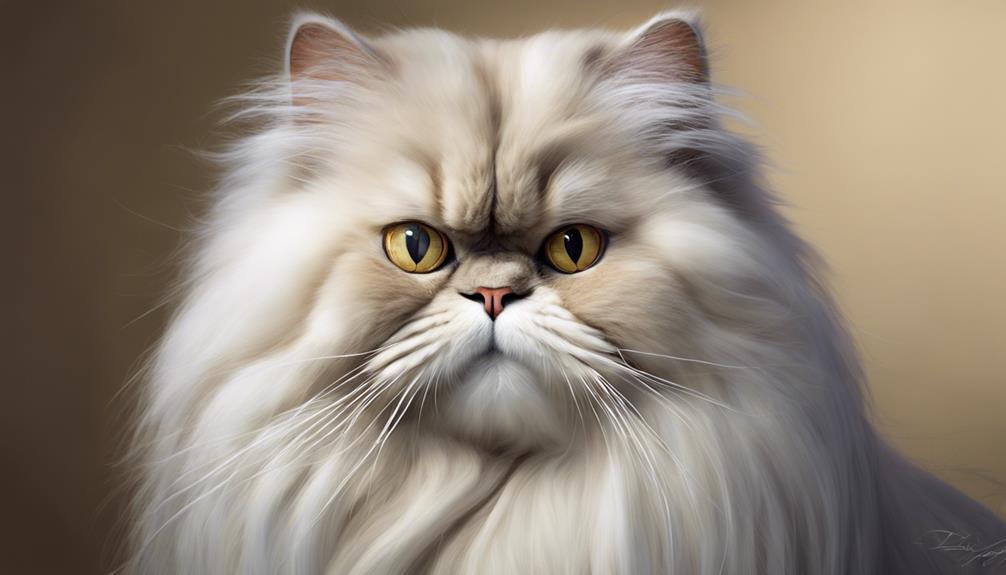
Moving from the discussion of Oriental Shorthair cats, we now shift our focus to the Persian breed. Persians are renowned for their glossy coats that require daily grooming due to their long length, making them strikingly beautiful cats. Their large mesmerizing eyes are enchanting and add to their charm.
What sets Persians apart is their docile nature; they're calm, affectionate, and enjoy spending time with their owners. These fluffy felines are true lap cats, seeking attention and affection from those they trust. Their placid temperament makes them ideal companions for individuals seeking a gentle and loving pet.
While Persians are generally calm and laid-back, they do require a time commitment for grooming to maintain their luxurious coats in top condition. If you're looking for a loving and affectionate furry friend that enjoys lounging around and being pampered, the Persian breed might be the perfect choice for you.
Scottish Fold
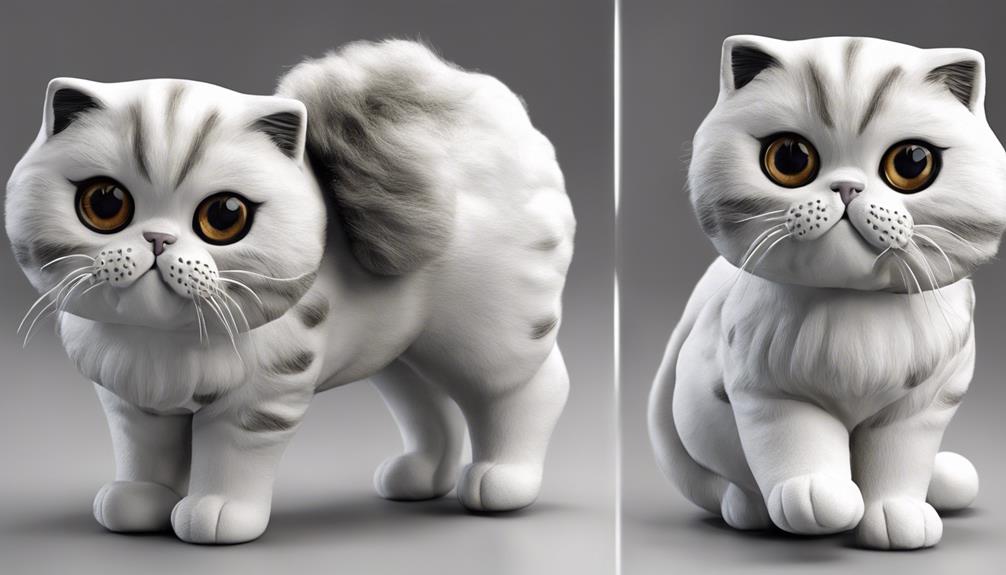
Scottish Folds are known for their distinctive folded ears that give them an adorable look.
These cats are playful and affectionate, forming strong bonds with their favorite human.
Their rounded features contribute to their unique charm, making them a popular choice among cat enthusiasts.
Unique Folded Ears
With their distinctive folded ears adding to their charming appearance, the Scottish Fold breed of cats is known for its unique feature that sets them apart from other feline companions. These folded ears are a result of a genetic mutation affecting cartilage development, giving Scottish Folds their signature look.
The rounded appearance of this breed, including their round head, eyes, and toes, complements the folded ears perfectly. Scottish Folds aren't only visually appealing but are also known for their loyalty and affectionate nature. They tend to form strong bonds with one person in the family, showing unwavering devotion.
Their sweet and gentle demeanor makes them wonderful companions for both families and individuals seeking a loving and devoted feline friend.
Playful and Affectionate
Exuding warmth and playfulness, these affectionate felines delight in forming strong bonds with their human companions. Scottish Fold cats, with their charming folded ears and rounded features, aren't only visually appealing but also incredibly loving and interactive. Here are three reasons why Scottish Folds make wonderful companions:
- Loyal Companions: These intelligent cats tend to bond closely with a specific person in the family, showing unwavering loyalty and affection.
- Playful Nature: Scottish Folds enjoy engaging in playtime, especially with toys that challenge their clever minds, making them a joy to interact with.
- Need for Human Connection: These affectionate cats can experience anxiety if left alone for extended periods, preferring the company and attention of their human friends.
Siberian Cat
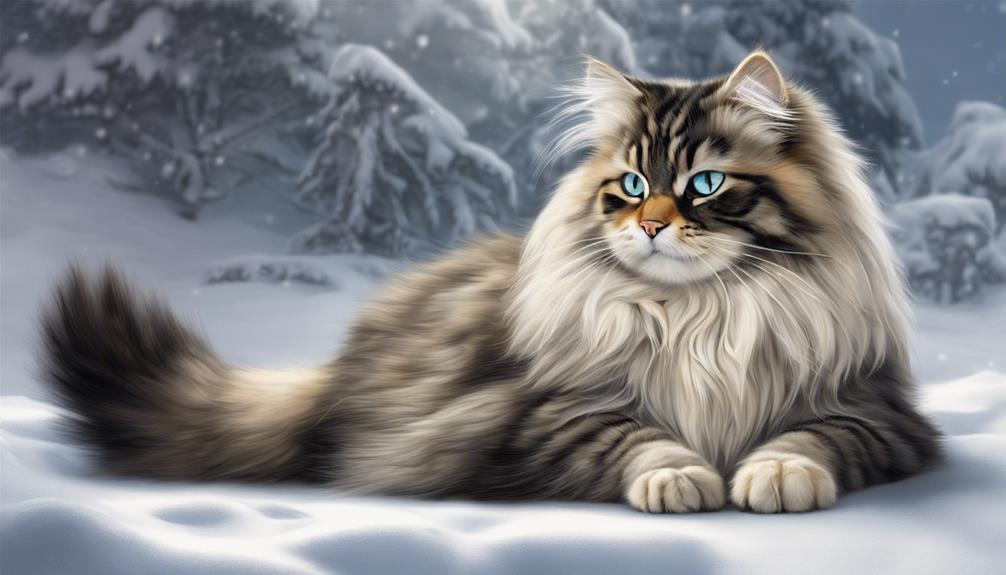
Siberian cats, known for their semi-long fur coats and large paws, have a charming and fluffy appearance. This fluffy breed, also known as the Siberian Forest cat, is a popular choice for those seeking a cuddly companion. These cats are best suited for homes with outdoor access, where they can explore and roam freely. However, they may not be the ideal choice for city living or apartments due to their active nature and need for space.
Their super-soft fur adds to their appeal, making them gentle and observant companions. Siberian cats may exhibit pouncing behavior when engaged in play, showing their playful side. When they were brought to the UK in 2002, they captured the hearts of many with their striking looks and endearing personalities.
Turkish Angora
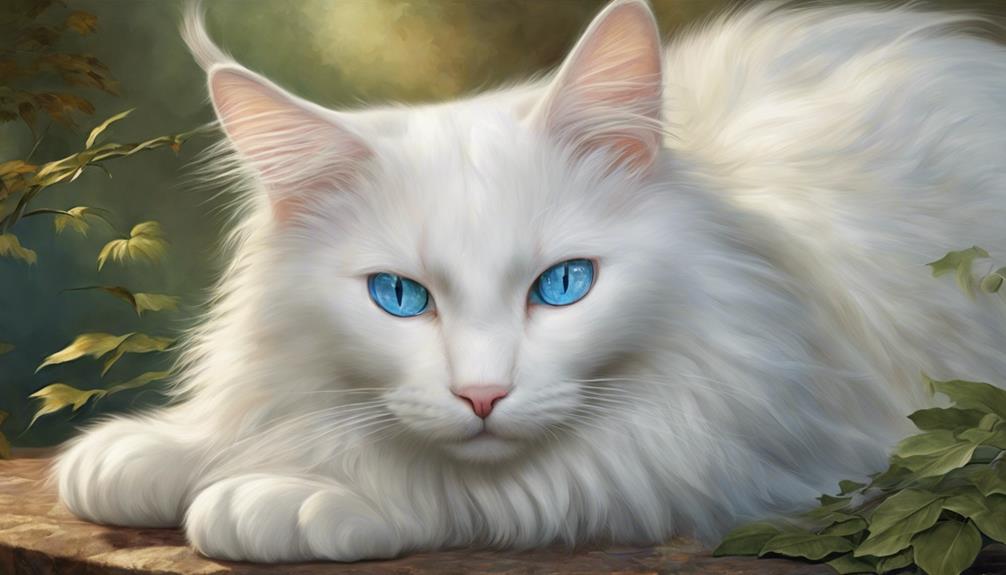
Let's talk about Turkish Angoras and what makes them unique.
These cats are known for their stunning longhaired coats that can come in black and white.
They aren't only beautiful but also affectionate and playful companions, making them a delightful addition to any household.
Turkish Angora Characteristics
The Turkish Angora, with its exquisite longhaired coat and affectionate nature, is a mesmerizing breed known for their intelligence and engaging personality. When considering this breed, keep in mind these key characteristics:
- Their soft, glistening fur and symmetrical bodies make Turkish Angoras visually striking.
- Turkish Angoras exhibit affectionate behavior towards their owners, enjoying interactive playtime with stimulating toys.
- These cats come in various colors, including the classic black and white pattern, showcasing their unique physical features.
Turkish Angoras aren't only beautiful but also intelligent and active, making them delightful companions. Their affinity for water-related activities adds an extra element of fun to their already charming personalities.
Turkish Angora Temperament
With their playful and active nature, Turkish Angoras exhibit an affectionate temperament that thrives on interaction with their owners. These cats are not only playful but also highly intelligent, making them a joy to have around. Their social nature means they enjoy being part of the family activities and will often seek out attention and companionship. Turkish Angoras are known for their love of water, adding an entertaining element to their already lively personalities. Additionally, their intelligence allows them to be trained to do tricks, showcasing their adaptability and quick learning abilities. If you're looking for a cat that is not only playful and active but also affectionate and intelligent, the Turkish Angora could be the perfect match for you.
| Playful | Affectionate | Intelligent |
|---|---|---|
| Yes | Yes | Yes |
Turkish Angora Care
Ensuring proper grooming practices is essential for maintaining the health and beauty of Turkish Angoras, especially considering their exquisite longhaired coats and active nature. When caring for a Turkish Angora, remember these key points:
- Regular Brushing: Their longhaired coats require frequent brushing to prevent mats and tangles, keeping their fur soft and glistening.
- Interactive Play: Engage in playtime activities to fulfill their need for mental stimulation and exercise, enhancing their affectionate nature.
- Color Varieties: Turkish Angoras come in various colors, such as the striking black and white combination, adding to their unique charm.
British Shorthair
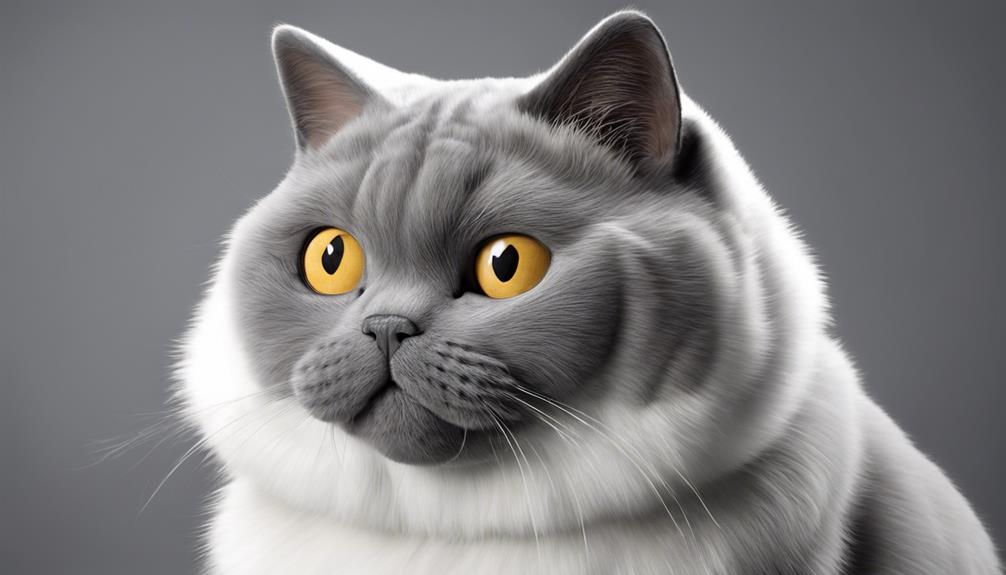
Among the various black and white cat breeds discussed, one particularly stands out for its kind and easy-going personality – the British Shorthair. These cats are beloved for their dense coats and gentle temperament, making them perfect for family life. British Shorthairs are not only affectionate but also get along well with other pets, including dogs, and are great with children. Their laid-back nature and adaptability make them ideal companions for those seeking a loving feline friend. Below is a table summarizing key characteristics of the British Shorthair:
| Characteristic | Description |
|---|---|
| Coat | Dense and thick |
| Temperament | Gentle and easy-going |
| Suitability for Kids | Excellent; great with children |
| Adaptability | Able to adjust well to different environments |
British Shorthairs are not only beautiful with their black and white coats but also bring warmth and joy to any household they become a part of.
Cymric

Cymric, a long-haired cat variant of the Manx breed, is known for its unique tail characteristics, including being tailless or having stump tails. These felines are truly special companions, and here's why:
- Tailless Beauty: Cymrics' taillessness or short tails add to their charm and make them stand out among other cat breeds.
- Affectionate Personalities: Cymrics aren't just unique in appearance but also in their loving nature. They thrive on attention and are happiest when surrounded by affectionate humans.
- Legendary Tails: According to legend, the Cymric's tail story goes back to Noah's ark, where the Manx cats boarded last, and as the door closed, it caught their tails, resulting in them losing their length. This mythical tale adds an intriguing layer to these delightful feline companions.
Cymrics make wonderful pets for those seeking a loving and one-of-a-kind furry friend. Their affectionate demeanor and distinctive appearance make them perfect for individuals looking for a special bond with their feline companions.
Japanese Bobtail

Japanese Bobtail cats, known for their distinctive pom-pom tails, are revered as symbols of good luck in Japanese culture. These original lucky cats sport a charming mix of black, red, and white fur, adding to their unique allure. Believed to bring good luck to those who own them, Japanese Bobtails aren't just visually striking but also possess a special vocalization. Their sing-song meow is unlike any other, making them even more endearing companions. The playful nature of the Japanese Bobtail, combined with their elegant appearance, makes them a favorite among cat enthusiasts.
Their distinctive tails, resembling a waving pom-pom, are a standout feature that sets them apart from other breeds. This breed's history intertwined with Japanese folklore adds to their mystique. Whether you're drawn to their striking appearance or the promise of good fortune, Japanese Bobtails are sure to captivate you with their charm and unique vocalizations.
Siberian Forest Cat
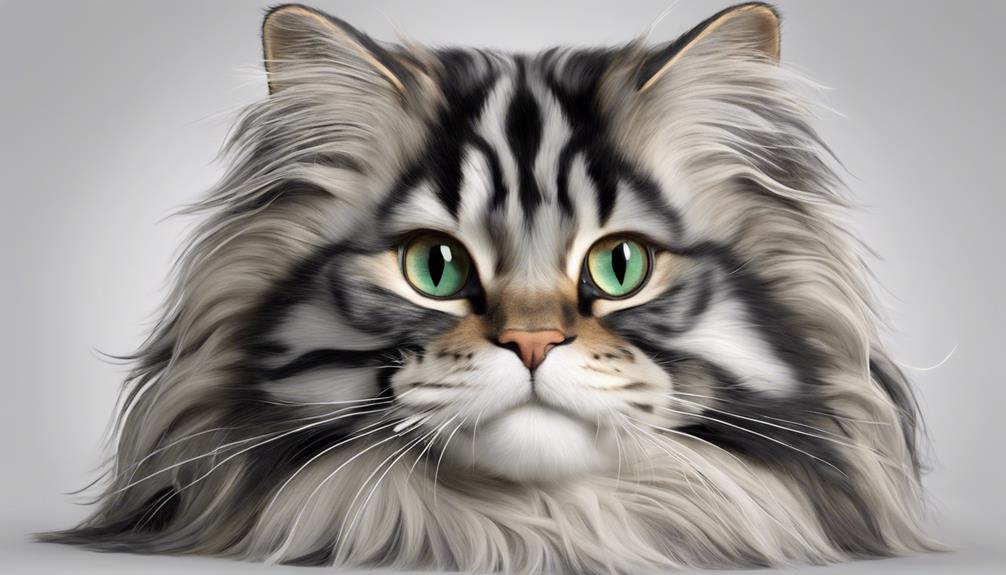
With their fluffy coats and large paws, Siberian Forest Cats are known for their distinctive physical features. These beautiful felines are best suited for homes with outdoor access, as they love to explore and roam in nature.
Here are some key points about Siberian Forest Cats:
- Active Nature: Siberian Forest Cats aren't ideal for city living or apartments due to their need for space and outdoor stimulation.
- Super-Soft Fur: One of the most appealing traits of the Siberian Forest Cat is their luxurious, soft fur, which makes them a joy to pet and cuddle.
- Independent Yet Affectionate: These cats strike a perfect balance between independence and affection. They enjoy their alone time but also appreciate snuggles and companionship.
If you're looking for a cat that embodies both elegance and a wild spirit, the Siberian Forest Cat might just be the perfect addition to your family.
Turkish Van

Known for their sturdy build and playful nature, Turkish Vans have a unique affinity for water. These sociable cats sport a distinctive van pattern, with a white body adorned with color spots, creating a beautiful coat pattern that's sure to catch your eye. Their love for water sets them apart from other breeds, making bath time an enjoyable experience rather than a dreaded task.
Turkish Vans aren't only known for their stunning appearance but also for their engaging personalities. They love interactive play and are always up for a game with their favorite humans. Their sociable nature makes them wonderful companions, as they enjoy spending time with their family members.
Whether they're chasing after toys or splashing in water, Turkish Vans bring joy and excitement into any home. With their unique coat pattern and playful demeanor, these cats are sure to capture your heart and keep you entertained for hours on end.
Ragamuffin
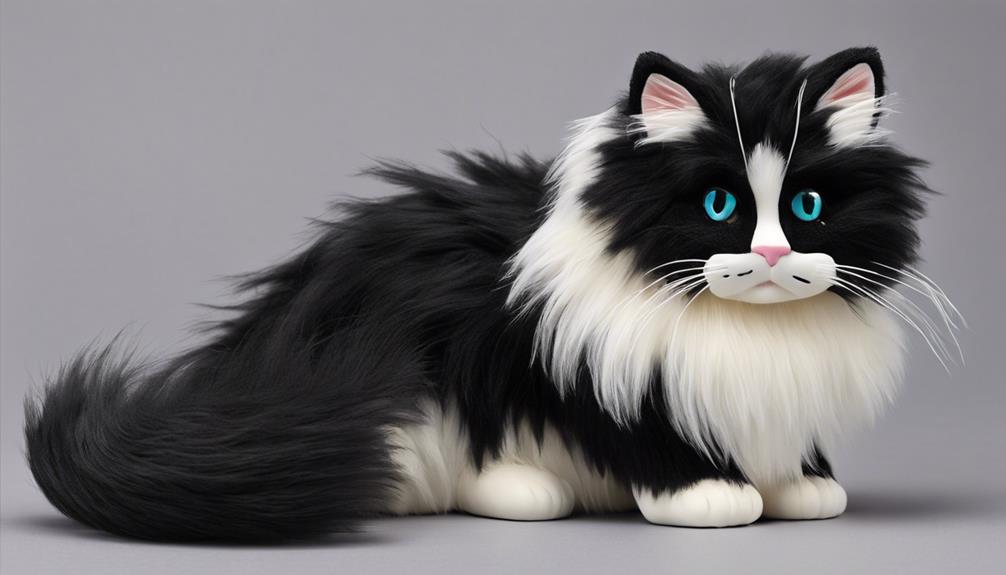
Cuddly and gentle, Ragamuffins are adored for their affectionate nature and playful demeanor. These large cats boast a rectangular balanced body structure, making them not only visually diverse with a variety of colors and patterns but also genetically healthy for long and happy companionship. Here are some key points to ponder about Ragamuffins:
- Affectionate Behavior: Ragamuffins are known for their loving and warm personalities. They enjoy spending time with their human companions, often seeking out cuddles and pets.
- Great Family Pets: Due to their friendly nature and sociable behavior, Ragamuffins make excellent family pets. They're gentle with children and are happy to be a part of the family activities.
- Long and Happy Companionship: With their robust genetics and strong health, Ragamuffins can provide many years of joy and friendship. Their playful antics and loyalty ensure a lasting bond that brings happiness to any household.
Frequently Asked Questions
What Breed Is My Cat if It's Black and White?
We love black and white cats! They can belong to various breeds like British Shorthair, Cymrics, Maine Coon, Munchkin, and Japanese Bobtail. Each breed offers unique traits, from kind personalities to cheeky playfulness.
Are Black and White Cats the Most Affectionate?
We believe black and white cats are among the most affectionate. They tend to seek love and attention, showing devotion through playful interactions. Their sweet and loving nature makes them cherished companions for those seeking a loyal and cuddly feline friend.
What Personality Does a Black and White Cat Have?
Black and white cats have a diverse range of personalities. From gentle and loyal to energetic and playful, they exhibit traits like affection, intelligence, and sociability. These feline companions can be great for various lifestyles.
Should I Get a Black and White Cat?
We should get a black and white cat if we're ready for commitment, love, and playful company. They bring joy and companionship, but remember to contemplate our lifestyle and ability to care for them properly first.
Are Black and White Cat Breeds Good for First-Time Owners?
Black and white cat breeds are ideal for first-time owners due to their even-temperament and low maintenance. Whether it’s the perfect orange white cat breed or any other variation, these cats are known for their sociable nature and adaptability to different living situations.
Conclusion
In the world of perfect black and white cat breeds, there are many options to choose from, each with their own unique characteristics and charm. Just like a beautiful piece of artwork, these feline companions bring a touch of elegance and sophistication to any home.
Whether you prefer the playful nature of a Maine Coon or the exotic look of a Turkish Van, there's a black and white cat breed out there waiting to capture your heart. Choose wisely and enjoy the beauty they bring to your life.
Paul’s love for animals knows no bounds. As a dedicated writer and animal lover, Paul brings a unique perspective to our team. His firsthand experiences with various animals enrich our content and provide valuable insights into their behavior and needs. Whether he’s sharing tips for pet care or shedding light on pressing conservation issues, Paul’s passion for animals shines through in everything he does.
Cats
Does My Cat Follow Me to the Bathroom?
Feline companionship in the bathroom: discover the reasons why cats follow you and deepen your bond with your furry friend.

When cats accompany you to the bathroom, it’s because they seek companionship, show affection, and care for you. This behavior helps strengthen the bond between you and your feline friend. Understanding their actions can deepen the connection you share. Cats find comfort and security in shared moments, like bathroom time, enhancing your relationship. By setting boundaries and creating a cat-friendly space, you can promote a harmonious coexistence. Tips for cat owners include designating a cozy area with interactive toys. Remember, cats follow you to the bathroom for various reasons, all stemming from their love and desire for closeness.
Key Takeaways
- Cats follow to the bathroom for protection, affection, and companionship.
- Bathroom time offers quality one-on-one interaction with cats.
- Following to the bathroom signifies closeness and affection.
- Cats seek attention and companionship during bathroom visits.
- Understanding and respecting cats' behavior enhances the bond during bathroom time.
Reasons for Cats Following to Bathroom
When cats accompany us to the bathroom, they often do so for reasons related to protection and affection. It might appear like a peculiar habit, but our feline friends have their motivations rooted in their unique cat behavior. For them, bathroom time isn't just a solitary activity; it's an opportunity for quality time with their beloved humans. Cats seek attention and companionship, and what better way to guarantee they've your undivided focus than by sticking close even in the bathroom?
Their curiosity and sense of exploration also play a role in this behavior. Cats are naturally inquisitive creatures, and they find comfort in being near their owners. The bathroom, with its closed doors and limited space, offers a cozy environment where cats can bond with their humans.
Understanding Your Cats Behavior

Cats displaying such behavior in the bathroom often showcase their unique ways of seeking closeness and forming connections with their owners. When your cat follows you to the bathroom, it's a sign of their affection and desire to be near you. Understanding why your cat exhibits this behavior can deepen your bond and address any underlying issues they may have. Cats may follow you to the bathroom because they seek attention, companionship, or simply enjoy your company. By recognizing these motivations, you can strengthen your relationship with your feline friend.
Observing your cat's behavior in the bathroom can provide insights into their emotional state and overall well-being. Ensuring a comfortable and safe environment in the bathroom for your cat is crucial to enhance their sense of security and relaxation. Paying attention to your cat's cues and responses during bathroom time can help foster a deeper connection and address any potential issues they may be facing. By understanding your cat's behavior, you can nurture a stronger bond based on trust and companionship.
Importance of Bathroom Bonding

Bathroom bonding with your cat is a valuable way to strengthen your relationship and create a deeper sense of companionship. Sharing bathroom time offers a unique opportunity for quality one-on-one interaction that can enhance your bond.
It's a moment where privacy meets companionship, allowing for a special connection with your feline friend.
Cats Curiosity in Bathroom
Exploring the bathroom with your feline companion can strengthen the bond between you and your cat. Cats are naturally curious creatures, and the bathroom provides a plethora of new sights, sounds, and smells for them to investigate. The enclosed space ignites their senses, making it an intriguing environment that sparks their interest.
Your cat's desire to follow you into the bathroom isn't just about companionship; it's about satisfying their curiosity and engaging with the world around them. By allowing your cat to join you in this space, you create opportunities for bonding and shared experiences, fostering a deeper connection between you both.
Embrace these moments of exploration with your cat to nurture your relationship and create lasting memories together in the bathroom.
Bonding During Daily Routine
Strengthening the bond with your feline friend through daily routines like bathroom time can enhance your relationship and deepen your connection. When you include your cat in these intimate moments, you're creating a special bond that goes beyond just being a pet owner. Here are some ways bathroom bonding can benefit your relationship:
- Sharing quiet moments together while you attend to your needs.
- Enjoying your cat's comforting presence as they curl up nearby.
- Engaging in playful interactions, like batting at a toy or receiving gentle headbutts.
- Experiencing mutual trust and vulnerability in a private space.
- Forming a daily ritual that strengthens your emotional connection.
Privacy Vs. Companionship
Understanding the balance between personal space and companionship is essential in fostering a strong bond with your cat during daily routines. When your cat follows you to the bathroom, it's not just about needing to be near you; it's also a way for them to seek companionship and show affection.
Bathroom visits provide a unique opportunity for your cat to connect with you on a deeper level, demonstrating their desire for closeness and connection. While privacy is often a cherished concept, the allure of companionship and bonding with their beloved owner outweighs the need for seclusion in the bathroom for cats.
Embrace these moments as a chance to strengthen your relationship with your feline friend and enjoy the special bond that forms during these intimate times.
Cats Perspective on Bathroom Time
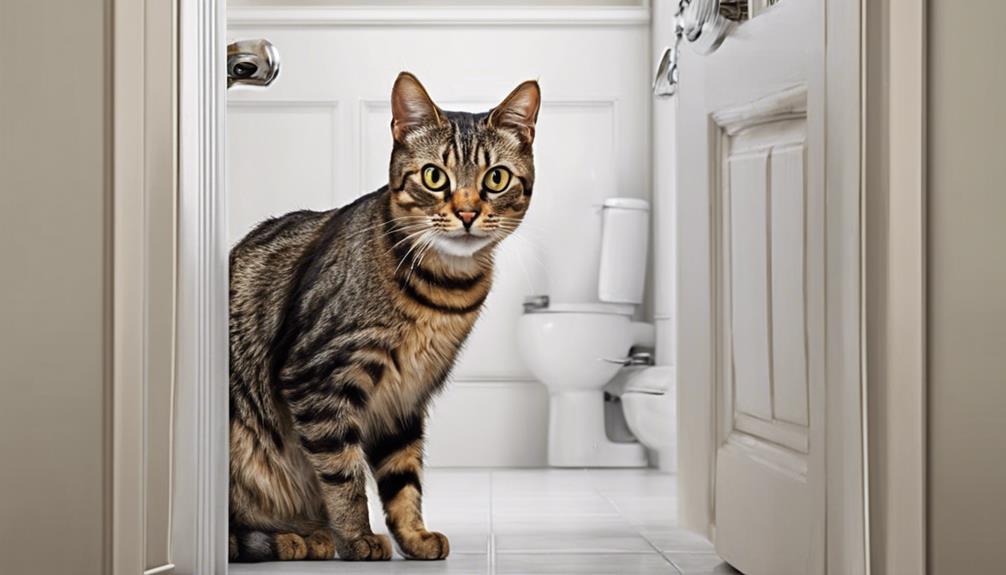
When it comes to your cat's perspective on bathroom time, it's important to understand their curiosity and need for attention. Cats often follow us to the bathroom seeking interaction and affection, making this a bonding moment for both parties.
Embracing these bathroom visits can strengthen the bond between you and your feline friend.
Cats Curiosity in Bathroom
Cats find the bathroom to be an captivating environment that stimulates their senses and curiosity.
- The rustling sound of a shower curtain can entice cats to investigate.
- The echo of their own meows in the tiled room can create a playful atmosphere.
- Sunlight streaming through a frosted window can cast mesmerizing patterns on the floor.
- The cool, sleek surfaces of the tiles offer a invigorating contrast to their fur.
- The absence of running water may prompt cats to search for the source of the intriguing sound elsewhere.
Cats Need for Attention
Entering the bathroom, we can observe how cats seek attention and affection from their owners in a desire for bonding moments. Your cat's need for attention becomes evident as they follow you into the bathroom, craving your companionship. This behavior showcases their love for you and their desire to be near you at all times.
Cats view bathroom time not only as a practical moment but also as an opportunity to connect with you on a deeper level. Offering them affection during these moments strengthens the bond between you and your feline friend. Understanding their need for attention during bathroom visits can help you nurture a more intimate and loving relationship with your cat.
Establishing Boundaries With Your Cat
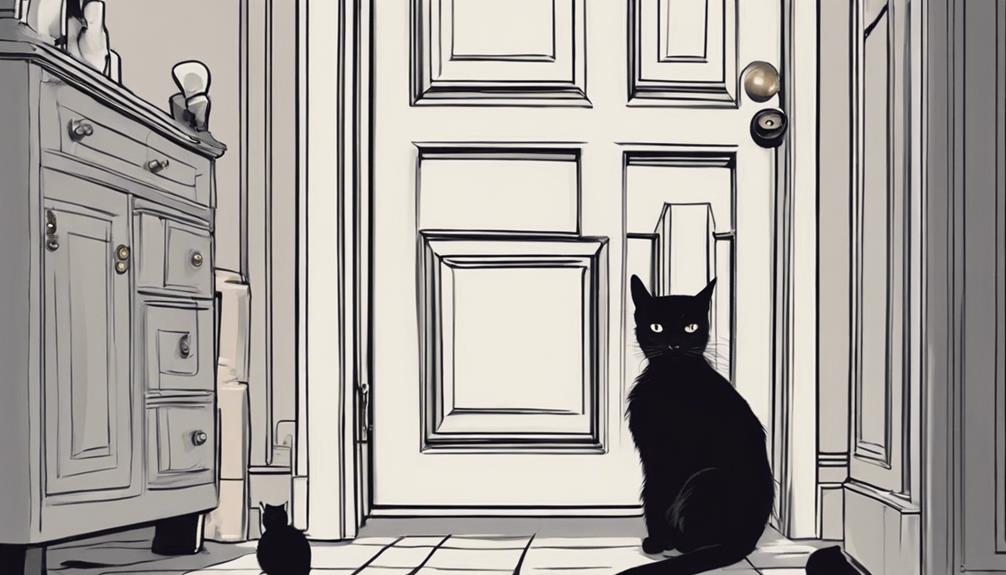
To establish a harmonious relationship with your feline friend, setting clear boundaries is essential. When it comes to interacting with your cat, boundaries help create a respectful and communicative environment. Here are some tips on how to establish boundaries with your furry companion:
- Consistent Enforcement: By consistently enforcing boundaries, you teach your cat what behaviors are acceptable.
- Positive Reinforcement: Using positive reinforcement techniques like treats or praise can encourage your cat to respect boundaries.
- Designated Space: Providing a specific area for your cat can help reinforce boundaries and give them a sense of security.
- Firm Yet Gentle: It's important to establish boundaries with a firm but gentle tone to maintain a harmonious relationship with your cat.
- Communication: Clear communication with your cat owner is key in setting and maintaining boundaries effectively.
Creating a Cat-Friendly Environment

How can we enhance our bathroom space to cater to our feline companions' needs and preferences effectively? Creating a cat-friendly environment in the bathroom is crucial to make sure that our furry friends feel comfortable and secure in this shared space. Start by placing a cozy blanket or pillow for your cat to relax on, providing them with a soft and inviting spot to rest.
Introducing cat-friendly plants like cat grass or catnip can also help create a stimulating environment that appeals to your cat's natural instincts.
Additionally, consider installing shelves or perches in the bathroom to give your cat opportunities to explore and observe their surroundings from different heights. Interactive toys or puzzles can keep your cat entertained and engaged while in the bathroom, making it a more enjoyable experience for them.
To conclude, make sure the bathroom is a safe and secure space where your cat can feel at ease, knowing they've a comfortable retreat whenever they might follow you in.
Addressing Cats Protective Instincts
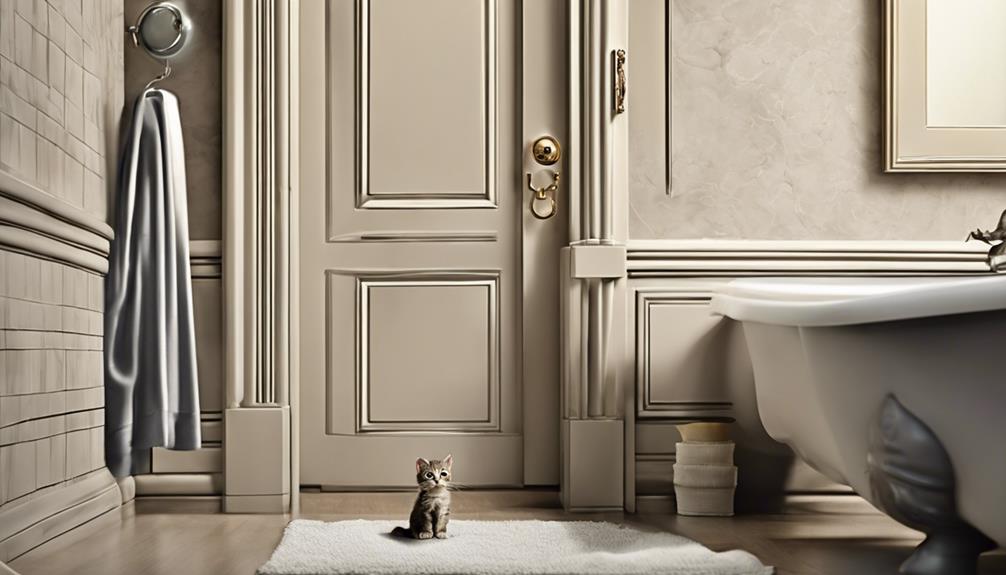
Comprehending cats' protective instincts strengthens our bond with them and guarantees their sense of responsibility for our well-being is acknowledged. Cats exhibit their protective instincts in various ways, showing their affection through actions that may seem peculiar to us:
- Following you to the bathroom: Cats see this as guarding their territory, which includes you, ensuring your safety.
- Purring and rubbing against you: These gestures aren't just displays of affection but also acts of protection, showing they care for your well-being.
- Keeping watch while you sleep: Cats often position themselves near you while you rest, standing guard to protect you.
- Alertness to unfamiliar noises: Cats' protective instincts make them vigilant, always ready to shield you from potential threats.
- Leaving 'gifts' at your doorstep: While sometimes unsettling, this behavior stems from their instinct to provide for and protect their loved ones.
Understanding and responding to these protective instincts can strengthen our connection with our feline companions and affirm their role as guardians in our lives.
Seeking Attention in Bathroom Visits

Cats seek attention in bathroom visits because they crave closeness, are curious about our routines, and desire interaction.
When our feline friends follow us to the bathroom, they see it as a prime opportunity to bond and be close to us.
Their need for companionship drives them to seek out these moments of togetherness.
Cats Need for Closeness
During bathroom visits, our feline companions seek attention and affection from us, demonstrating their need for closeness.
- Your cat may rub against your legs while you're using the bathroom, seeking physical contact.
- They might purr loudly to express contentment and a desire for closeness.
- Some cats may even try to sit on your lap or the bathroom sink to be closer to you.
- Their eyes may follow your every move, showing a genuine interest in your presence.
- By seeking attention in the bathroom, your cat is reaffirming the bond and love they feel towards you.
Curiosity About Routine
Our feline companions often exhibit a keen curiosity about our daily routines, particularly when it comes to our bathroom visits. Cats seek attention during these moments, using them as opportunities to bond with us.
Their interest in our bathroom routine may stem from a desire to engage with our activities and habits. When they follow us to the bathroom, they're showing affection and a fascination with our daily rituals. This behavior allows them to feel closer to us and be involved in our daily lives.
Desire for Interaction
Seeking attention and affection, our feline companions often accompany us to the bathroom to bond and engage with our daily routines. When your cat follows you in, it's a sign of their desire for interaction. Here's why they do it:
- They view bathroom visits as quality time to bond.
- Cats may meow, paw at the door, or follow you to express their desire for attention.
- The bathroom offers a calm environment for cats to engage with you.
- Cats enjoy being near their humans and strive to make sure they don't miss out on any affection.
- Bathroom time provides an opportunity for cats to connect with their owners in a quiet setting.
Valuing Human Company in Cats

Valuing human company is a significant aspect of a cat's behavior, as seen in their tendency to follow their owners to the bathroom. Cats view this time as an opportunity to be close to their beloved humans, seeking companionship and forming strong bonds.
When our feline friends choose to follow us, it's their way of showing affection and a desire to spend quality time together. The bathroom becomes a place of reassurance for cats, knowing that their human is nearby, which further solidifies the special connection between us and them.
Comfort and Security for Cats

Cats find comfort and security in following their owners to the bathroom. It's a place where they feel safe and at ease, seeking reassurance and companionship in this familiar environment. Here are some reasons why the bathroom offers cats a sense of comfort and security:
- The bathroom provides a quiet sanctuary for cats to relax and unwind.
- Cats enjoy the peaceful atmosphere of the bathroom, away from the hustle and bustle of the rest of the house.
- The enclosed space of the bathroom gives cats a sense of security, making them feel protected.
- The bathroom's consistent layout and familiar scents create a comforting environment for cats.
- Bonding with their owners in the bathroom helps cats feel connected and secure in their relationship.
Understanding the importance of the bathroom as a haven for cats can help strengthen the bond between you and your feline friend.
Bonding Through Bathroom Time
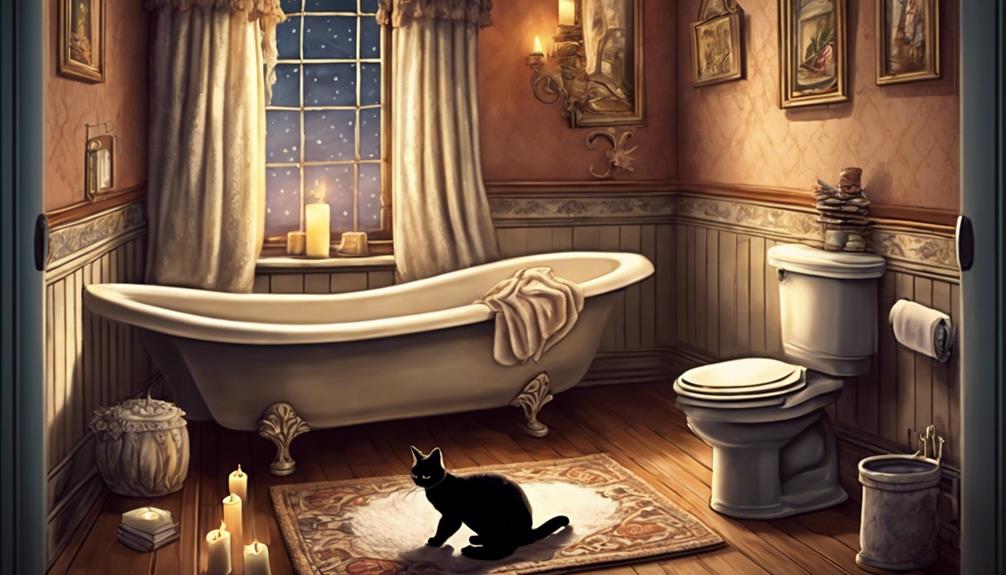
When cats join you in the bathroom, they're engaging in a bonding experience that strengthens the connection between you and your feline companion. It's a special time where your cat seeks companionship and closeness, showing their love and affection in a unique way.
As you go about your bathroom routine, your cat may follow you, wanting to be near and share those moments with you. This behavior is a way for them to deepen the bond you share, creating a sense of togetherness and security.
By allowing your cat to join you during these intimate moments, you're fostering a sense of trust and companionship that's essential for a strong relationship. Embrace these bathroom visits as opportunities to strengthen your connection with your furry friend, as they demonstrate their desire to be close to you and share in your daily experiences.
Bonding through bathroom time is a beautiful way to enhance the special bond you have with your cat.
Fostering Human-Feline Companionship

Seeking to strengthen the bond between humans and felines, spending time together in the bathroom can enhance companionship and mutual understanding. As we foster this connection, here are some ways to deepen the bond with our feline friends:
- Engage in gentle petting sessions, providing comfort and reassurance.
- Create a peaceful atmosphere with soft lighting and calming scents.
- Offer interactive toys for playful moments and mental stimulation.
- Share quiet moments of relaxation, allowing for peaceful coexistence.
- Provide treats and positive reinforcement to associate the bathroom with positive experiences.
Respecting Cats Motivations

To understand why cats follow us to the bathroom, it's essential to contemplate their natural instincts and social behaviors. As a cat parent, recognizing that your feline companion may follow you due to their need for attention and affection is vital. Cats are known for their independent nature, but they also seek connection and interaction with their human family members. Bathroom time presents an opportunity for bonding and quality time together, which your cat may enthusiastically embrace.
Additionally, some cats may follow you out of curiosity, wanting to explore new sights and smells in the bathroom. It's important to respect your cat's motivations and understand that their actions stem from a place of companionship and curiosity. By acknowledging and honoring these motivations, you can foster a deeper connection with your cat and alleviate any potential anxiety in cats that may arise from feeling separated from their beloved human.
Harmonious Coexistence With Cats

When sharing our living space with cats, it's important to understand that bathroom time can become a shared experience.
Our feline friends might see this as a moment to bond and show affection. Setting boundaries when necessary can help maintain a healthy and respectful relationship with our beloved cats.
Bathroom Buddies
In the bathroom, cats often exhibit their affectionate nature by following their owners. It's a time when they feel vulnerable and seek comfort in your presence.
Here are some ways to enhance your bathroom experience with your feline friend:
- Create a cozy spot: Provide a soft blanket or a comfortable perch for your cat to relax while you're in the bathroom.
- Offer gentle affection: Petting and talking softly to your cat can reassure them and strengthen your bond.
- Respect their boundaries: If your cat seems uncomfortable, give them space and let them decide if they want to stay or leave.
- Provide entertainment: Place some toys or a scratching post nearby to keep your cat occupied.
- Maintain a calm environment: Keep the atmosphere serene and peaceful to help your cat feel at ease.
Feline Space Invasion
Our feline friends often make their presence known in the bathroom, asserting their desire for closeness and companionship with us. Feline space invasion during bathroom visits is a common occurrence driven by our cats' innate need to be near us.
Cats view these moments as opportunities for bonding and quality time. Understanding and respecting this behavior can deepen the connection between you and your furry companion. However, if boundaries are necessary to maintain personal space, gentle training and redirection can help establish a harmonious coexistence.
Tips for Cat Owners

To enhance your cat's well-being and strengthen your bond, consider implementing these practical tips for cat owners.
- Create a Cat-Friendly Area: Designate a cozy spot in the bathroom with a soft blanket or bed where your cat can relax while you're in there.
- Interactive Toys: Keep some toys handy to engage your cat during bonding time in the bathroom.
- Pheromone Diffusers: Consider using pheromone diffusers to help your cat feel more secure and content in the bathroom space.
- Grooming Sessions: Use this time to groom your cat gently, reinforcing positive associations with bathroom visits.
- Positive Reinforcement: Reward your cat with treats or affection for good behavior during bathroom bonding time.
Frequently Asked Questions
Do Cats Follow You to the Bathroom to Protect You?
Yes, cats often follow us to the bathroom to protect and care for us. It's their way of showing affection and ensuring our safety. Offering a specific spot for guard duty outside the bathroom can reassure them.
Do Cats Know When You Go to the Bathroom?
We comprehend the curiosity surrounding feline behavior. Cats, with their keen senses, may indeed know when we head to the bathroom. Their sharp instincts and observations often lead to them following us, seeking connection and company.
What Does It Mean When Your Cat Follows You to the Bathroom?
When your cat follows you to the bathroom, it signals their affection and protective nature. They value your presence and seek reassurance of your well-being. It's a bonding moment, showing they care deeply for you.
Why Does My Cat Get Clingy When I Go to the Bathroom?
When we head to the bathroom, our cats can become clingy seeking attention and closeness. It's a cozy space where they feel secure. They view it as a bonding opportunity to be near us, showing their desire for companionship.
Is My Cat Following Me to the Bathroom Because It Hates Certain Smells?
Some smells cats hate may actually be the reason why your cat follows you to the bathroom. Cats have a keen sense of smell and certain scents may be unpleasant for them, causing them to seek out their owner for comfort and protection.
Conclusion
To sum up, remember that your furry friend may follow you to the bathroom for a variety of reasons. Understanding your cat's behavior and establishing boundaries can lead to a harmonious coexistence.
By fostering human-feline companionship and respecting your cat's motivations, you can strengthen your bond.
So next time your cat accompanies you to the bathroom, appreciate the opportunity for bathroom bonding, creating a calm and comforting atmosphere for both of you.
Paul’s love for animals knows no bounds. As a dedicated writer and animal lover, Paul brings a unique perspective to our team. His firsthand experiences with various animals enrich our content and provide valuable insights into their behavior and needs. Whether he’s sharing tips for pet care or shedding light on pressing conservation issues, Paul’s passion for animals shines through in everything he does.
-

 Vetted1 month ago
Vetted1 month ago15 Best Dog Food Brands Recommended by Vets for Healthy and Happy Pups
-

 Vetted1 month ago
Vetted1 month ago14 Best Homemade Dog Food Recipes Your Pup Will Love – Vet Approved & Nutritious
-
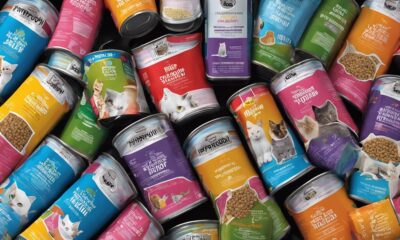
 Vetted1 month ago
Vetted1 month ago15 Best Cat Foods for Managing Hyperthyroidism – Vet Approved and Feline Friendly
-
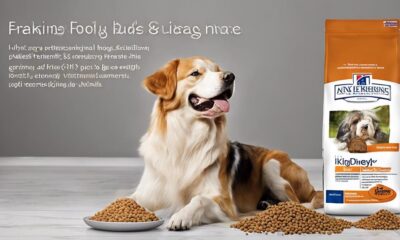
 Vetted3 weeks ago
Vetted3 weeks ago15 Best Dog Foods for Kidney Disease – Expert Recommendations for Your Pet's Health
-
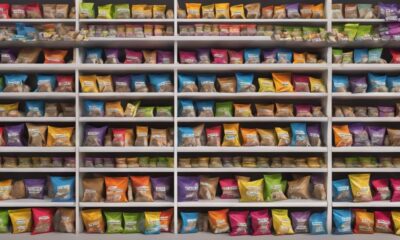
 Vetted2 weeks ago
Vetted2 weeks ago15 Best Affordable Cat Foods That Won't Break the Bank
-
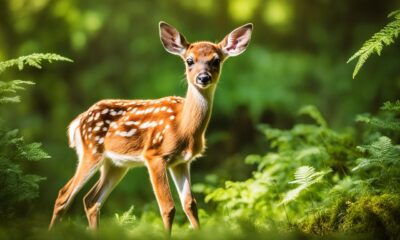
 Deers1 month ago
Deers1 month agoCaring for Baby Deer: Tips for Healthy Fawns
-
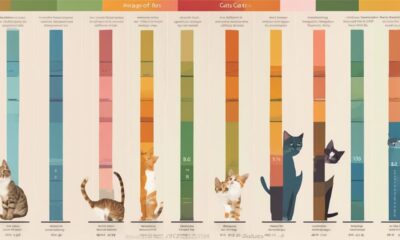
 Cats6 days ago
Cats6 days agoCat Weight Chart by Age: Kitten to Senior in Lbs
-
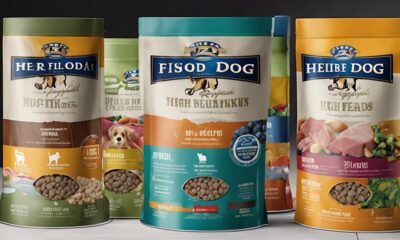
 Vetted1 month ago
Vetted1 month ago15 Best Kibble Dog Foods for a Healthy and Happy Pup
